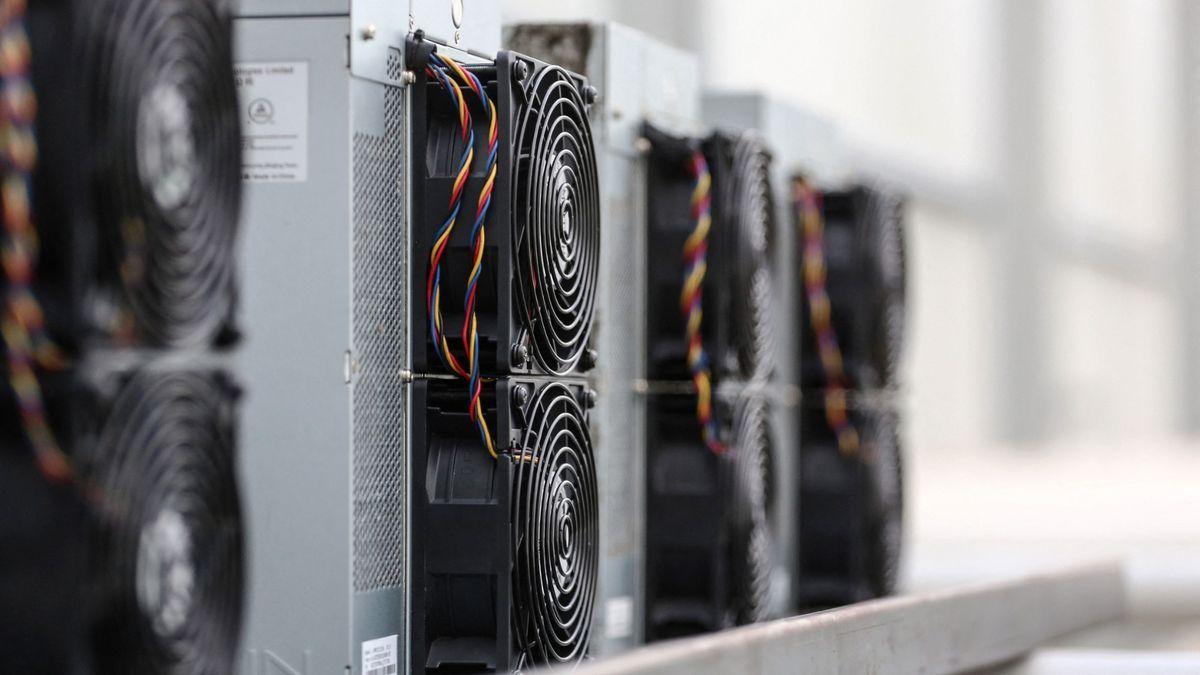Bitcoin Miners Pivot to AI Data Centers as Mining Profits Decline
2 Sources
2 Sources
[1]
AI Needs Data Centers and Bitcoin Miners Are Delivering Them | The Motley Fool
Where does all the power for AI really come from? Find out what's happening behind the scenes as AI reshapes adjacent technology industries. Artificial intelligence (AI) needs a lot of computing power. From training the back-end systems to running the daily operations, AI businesses rely on tons of high-end chips and rivers of electric energy. It's not easy setting up an AI shop, since you need at least one data center with ample and affordable power. Luckily, another group of number-crunching tech companies are ready to sell, rent, or lease powered data center space to the incoming AI hopefuls. That's the Bitcoin (BTC 3.22%) mining crews taking a break from their costly main business. AI specialists are willing to pay a premium price for their data center services. MARA Holdings (MARA 0.69%) supports "high-performance computing applications, from AI to the edge" these days. Riot Platforms (RIOT +2.44%) is now "in the business of monetizing megawatts." Terawulf (WULF 6.74%) has signed a 25-year joint venture deal with Fluidstack, an AI capacity provider with close ties to Alphabet (GOOG +1.73%) (GOOGL +1.84%). These are some of the largest players on the Bitcoin mining scene. Terawulf had 12.2 exahashes per second (EH/s) of mining capacity in Q2 2025. Riot had a 35.4 EH/s hashrate at the same time, and MARA overshadows them all with a 50 EH/s capacity. Together, they account for about 8% of global Bitcoin mining activity. I could keep going; smaller Bitcoin miners are also jumping aboard the AI opportunity. Bitcoin mining is a cyclical business. Mining rewards are halved on a predictable four-year schedule. Each halving disrupts the mining industry as service providers scramble to find a profitable operating plan with a thinner revenue stream and steady expenses. It's no surprise to see these companies cast a wandering eye at alternative plans, at least to keep the lights on while the Bitcoin business isn't terribly lucrative. And the new plan seems to work, at least for now. All of the Bitcoin mining stocks with an open mind for AI operations have outperformed Bitcoin in the last six months:
[2]
Why are Bitcoin Miners Turning to AI for Profits?
A major change is happening in the Bitcoin mining business. Many large miners have started to use their data centers, power deals, and technical skills to host artificial intelligence computing instead of running only mining hardware. This change is driven by falling mining profits, rising demand for GPU-based AI work, and the fact that Bitcoin miners already own the resources needed for AI: space, power, and cooling. Mining income has become less reliable. Two main factors squeezing profits include changes in and higher operational costs. When Bitcoin's spot price drops or the network difficulty rises, the money earned from mining becomes less. In September 2025, several industry reports pointed to a clear dip in mining profits, which pushed many mining companies to rethink their core strategies. At the same time, replacing and maintaining specialized mining machines adds to costs. Facing these pressures, miners have looked for steadier and often higher-margin ways to use the facilities and long-term power arrangements built for mining.
Share
Share
Copy Link
Major Bitcoin mining companies are transforming their operations to provide AI computing services, leveraging existing infrastructure to capitalize on the growing demand for AI data centers while mining profitability faces challenges.
Bitcoin Mining Industry Faces Profitability Crisis
The Bitcoin mining industry is experiencing a significant transformation as major players pivot toward artificial intelligence data center services amid declining profitability. The cyclical nature of Bitcoin mining, characterized by predictable four-year halving events that reduce mining rewards, has created operational challenges for mining companies
1
. These halving events disrupt the industry as service providers scramble to maintain profitable operations with reduced revenue streams while facing steady operational expenses.
Source: Analytics Insight
September 2025 industry reports highlighted a clear decline in mining profits, driven by multiple factors including Bitcoin's spot price volatility and rising network difficulty
2
. Additionally, the costs associated with replacing and maintaining specialized mining equipment have further squeezed profit margins, forcing companies to explore alternative revenue strategies.Major Players Embrace AI Infrastructure Services
Several prominent Bitcoin mining companies have successfully transitioned portions of their operations to serve the growing AI market. MARA Holdings now supports "high-performance computing applications, from AI to the edge," while Riot Platforms has repositioned itself as being "in the business of monetizing megawatts"
1
. Terawulf has secured a substantial 25-year joint venture agreement with Fluidstack, an AI capacity provider with close connections to Alphabet.These companies represent significant players in the Bitcoin mining ecosystem. Terawulf operated with 12.2 exahashes per second (EH/s) of mining capacity in Q2 2025, while Riot maintained a 35.4 EH/s hashrate. MARA Holdings leads the group with 50 EH/s capacity
1
. Collectively, these three companies account for approximately 8% of global Bitcoin mining activity, demonstrating the scale of the industry shift.Strategic Advantages in AI Transition
Bitcoin miners possess inherent advantages that make them attractive partners for AI companies seeking data center services. Their existing infrastructure includes essential components for AI operations: adequate space, reliable power arrangements, and sophisticated cooling systems
2
. These facilities were originally designed to handle the intensive computational requirements of cryptocurrency mining, making them well-suited for GPU-based AI workloads.The transition has proven financially beneficial, with AI specialists willing to pay premium prices for data center services. This represents a more stable revenue model compared to the volatile nature of Bitcoin mining profits. Mining companies have leveraged their long-term power contracts and technical expertise to create diversified income streams that can sustain operations during periods when Bitcoin mining becomes less profitable.
Related Stories
Market Performance and Industry Impact
The strategic pivot has yielded positive results for participating companies. Bitcoin mining stocks that have embraced AI operations have outperformed Bitcoin itself over the past six months, indicating investor confidence in this diversification strategy
1
. This trend extends beyond the largest players, with smaller Bitcoin miners also pursuing AI opportunities to supplement their primary mining operations.The convergence of Bitcoin mining infrastructure with AI computing needs represents a significant development in both industries. As artificial intelligence applications continue to expand and require substantial computing power, the existing data center capacity from Bitcoin miners provides a readily available solution to meet growing demand.
References
Summarized by
Navi
[2]
Related Stories
Recent Highlights
1
Pentagon threatens to cut Anthropic's $200M contract over AI safety restrictions in military ops
Policy and Regulation

2
ByteDance's Seedance 2.0 AI video generator triggers copyright infringement battle with Hollywood
Policy and Regulation

3
OpenAI closes in on $100 billion funding round with $850 billion valuation as spending plans shift
Business and Economy








